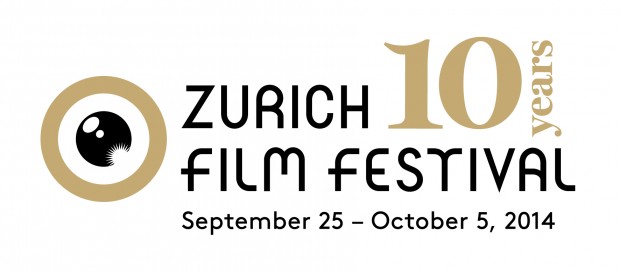You have no items in your cart. Want to get some nice things?
Go shoppingLitro interviews the organisers of the 10th Zurich Film Festival.

The Zurich Film Festival celebrates its 10th anniversary this year, and opens in fine form on September 25th with James Brown biopic Get On Up. Highlights include the ‘New World View’ film section, featuring India as guest country, and a Special Tribute Concert with German Composer Hans Zimmer. Nicola Hodges from Litro spoke to the festival co-directors: Nadja Schildknecht and Karl Spoerri.
The Zurich Film Festival was the original idea of Karl Spoerri, a film producer from Zurich, who founded the festival together with Nadja Schildknecht and Antoine Monot. Their ambition was to provide a unique networking platform that brings together those established in the film industry, new creative talent and the public. The first festival in 2005 was a relatively small-scale event, screening just eight premieres in one competition category with 8,000 visitors. The press and film industry were initially sceptical about the event, questioning the need for another film festival in Switzerland when two already existed in Locarno and Solothurn.
In 2009 the festival suffered a major setback when honorary guest Roman Polanski was arrested with charges of sexual assault on arrival in Switzerland and held under house arrest for nine months. He would not be able to collect his award until two years later, in 2011. This was a PR disaster and cast a shadow over the festival but the news of his arrest gave the festival the international media interest that it needed and made it well known around the world.
The ZFF has not gained renown just for this event, though. Every year has seen huge growth, rapidly earning the festival international recognition as one of the most important festivals in Europe. It now has the reputation as a great place to promote films, grabbing the attention of, among many other places, Los Angeles. Spoerri explained: “The film festival is well established in Switzerland and in the German language market and everyone in the industry knows us by now. This is quite an achievement because there are so many festivals around the world.”
The aim of the Festival is to offer audiences an insight into the work of the most promising film-makers from around the world, with special emphasis on the discovery and encouragement of new talent from the German-speaking world. There are three competition categories: International Feature Film, International Documentary Film and the German Language Film called ‘Focus: Switzerland, Germany, Austria. The main festival award is the Golden Eye, which is awarded to the competition winners and to the festival’s guests of honour.
This year the Golden Eye for career achievements in cinema will be awarded to Oscar-nominated producer Michael Shamberg (Erin Brockovich, Pulp Fiction, Django Unchained). Another film produced by Shamberg and Stacey Sher, crime drama A Walk Among The Tombstones, will be presented at the Festival by the film’s star, Academy Award nominee Liam Neeson. Diane Keaton will receive the Golden Icon Award at this year’s Festival and will present her latest film, the romantic comedy And So It Goes, directed by Rob Reiner and co-starring Michael Douglas.
The ZFF is renowned for its numerous side events, including the Zurich Masters, where celebrated personalities from the international film industry are available for public question-and-answer sessions. This year’s Masters include renowned international telents Frederick Wiseman, Susanne Bier, Hans Zimmer, Michael Ballhaus and Ulrich Seidl. Another event, ZFF for Children, shows films for children and families in their original language, with subtitles in English. There is also the ZFF’s third International Film Music Competition, with a tribute concert written especially for Zimmer, who will be guest of honour. Extracts from his movies will be shown alongside the concert, in which participating composers compete to score music to a short film and the five best pieces are performed.
Some new events are also planned for this year. For its 10th anniversary, Zurich Film Festival launches the ‘ZFF 72 Talent Contest’ – where participants are given 72 hours to create a film clip with a specified theme – and the out-of-competition section ‘ZFF TVision’ where some mini-series and pilots will be screened. The ‘Woman of Impact Dinner’ will be hosted by Tina Brown in honour of actress Juliette Binoche, with a guest list full of new talents and powerful women from the film industry. The festival organisers emphasise that almost all the events and award ceremonies are open to the public, as Schildknecht was keen to point out: “We call this ‘Ein Fest Furs Kino’. A party for the cinema, which is for everybody. Some festivals, like Cannes, are not open for the public and that is why sometimes people think when they see the green carpet it’s not open to the public, but it is. We share the stars, we share the movies, we share the parties.”
The Zurich Master Class and the International Film Finance Forum are also events unique to the ZFF. The Zurich Master Class facilitates networking between young, talented film-makers and leading experts from the film industry, with the aim to provide motivation and inspiration for young film-makers. Unique to the German-speaking world, the Film Finance Forum is a conference where representatives from the entertainment and film industries meet investors and representatives from the world of finance, providing an opportunity to make finance more readily available for international co-productions. This year the ZFF presents the first Zurich Summit, which is based upon the Film Finance Forum, and allows the exchange of cutting-edge ideas and new business models between entrepreneurs, business leaders and creative luminaries from the entertainment and media industries.
Zurich, being a banking capital and one of the leading business centres of the world, could have stifled the festival and the film industry’s creative independence, but the city already has a thriving artistic and cultural scene with one of the highest concentrations of cinemas in Europe. There is a lot of potential here for producers to obtain funding from Swiss investors, providing the festival with another advantage and selling point amongst those that the organisers emphasised. Spoerri told me: “Zurich is actually a perfect city to host a film festival for so many reasons, with the infrastructure, great audience and we have companies here who can sponsor a film festival. We have everything in five minutes’ walking distance, compared to other cities where it’s spread all over the city.”

Schildknecht agreed that being centrally placed in the city makes it easy for companies to promote a film here and connect with others from the industry. “This is a big point for the festival, people feel comfortable here and can talk here more easily. Compared to other film festivals like Cannes, where it is so hectic and stressful. In Zurich it is all a little bit easier. And we are very well organised.”
A recent collaboration with the Sans Sebastian Film Festival raised questions because it takes place almost at the same time as the Zurich Film Festival, but film-makers and distributors can gain access to both the important film markets of Spain and the German-speaking market in Zurich whilst on the festival tour in Europe. Spoerri acknowledged that being in the centre of Europe it is easy for Zurich to be included in an itinerary: “Film-makers, producers and sales companies always think about Zurich if they are thinking about a place where they can do a premiere, so if the film goes on tour, the Zurich Festival is always on their minds”.
The aim of the organisers to grow in small steps sets it apart from many other film festivals, who all want to be Cannes if they had the notoriety and resources. Yet in Zurich the glamour factor does seem to be very high for such a young festival, attended by some of Hollywood’s most famous stars, including the legendary Richard Gere, John Travolta, Helen Hunt and Harrison Ford. The festival was initially criticised for having too much glamour and too little content, not screening as many films as other festivals. This attracts a lot of media hype about which stars will be coming, but those who finance the festival expect the famous stars to create the necessary media interest.
However, as Schildknecht remarked, “We make it with the stars and with the new talent.” She’s emphasising that some of the films they show are those with less commercial value that are ordinarily squeezed out by mainstream films and don’t make it into the cinemas. For example, their Border Line Films, organised in collaboration with Médecins Sans Frontiéres, deals with border situations and humanitarian projects that occur worldwide in the present day. The New World View section showcases new film-making talent from a different country every year – this year the guest country is India. Ten new films will be shown by emerging independent Indian film-makers who undermine the common stereotypes in mainstream Indian cinema. They include the award-winning social drama Fandry which is director Nagraj Manjule’s demonstration against the Indian caste system; Nishtha Jain’s documentary Gulabi Gang about violence against women and the women’s rights movement; and Monsoon Shootout from Amit Kumar, a film noir thriller about a young policeman confronting the criminal network of an unscrupulous slumlord.
This extensive programme of side events and carefully selected films makes the ZFF a very unique festival, as Spoerri made clear. “Zurich is essentially a boutique festival with a high quality of hand-picked films, compared to four hundred or so films shown at other festivals. You can see an interesting mixture of productions from the last twelve months. We have great guests, big names and new talents and I think the mixture makes it very unique. You can do a festival with four hundred films like other festivals but it’s just not what we want to do. We want it more hand-picked.”
Schildknecht commented that this selectiveness and careful planning are characteristic of their Swiss culture and the entire festival: “I see this a little bit in everything we do, also with the Master Class for example, where we hand-pick the guests that we invite.” Another feature is the number of cast and producers invited to the screenings. “From almost every movie we have somebody here, which I think is exceptional when you compare this with others.”
The festival may be progressing in small steps but since it started it has been hugely successful, as Schildknecht emphasised: “Every year the award is more important, even world wide. It’s not the most important one, of course not, but it is step-by-step getting to be something to receive this award.”
The organisers are very ambitious for the festival to become more established and grow in stature, and are keen to have more international premieres and media coverage, as Spoerri described. “We are ambitious and we try to establish more in the whole of Europe but also in the US and in South America.” It is, however, important for them to retain their careful planning and attention to detail, as Schildknecht pointed out. “We want to grow and improve, but in a natural way. It doesn’t mean that we want to grow so fast that our careful selection and planning is not guaranteed anymore.”
The festival runs from 25th September to 5th October. The programme available from September 11th at www.zff.com

About Nicola Hodges
Nicola Hodges is an English writer living in Zürich, Switzerland. She writes short stories, poetry and non fiction and her longer pieces of work are waiting in an orderly queue for her time and attention. Her latest short story has been published in the September/October double issue of "Ellery Queen Mystery Magazine." Find out more about her here: https://nicolahodges.weebly.com




